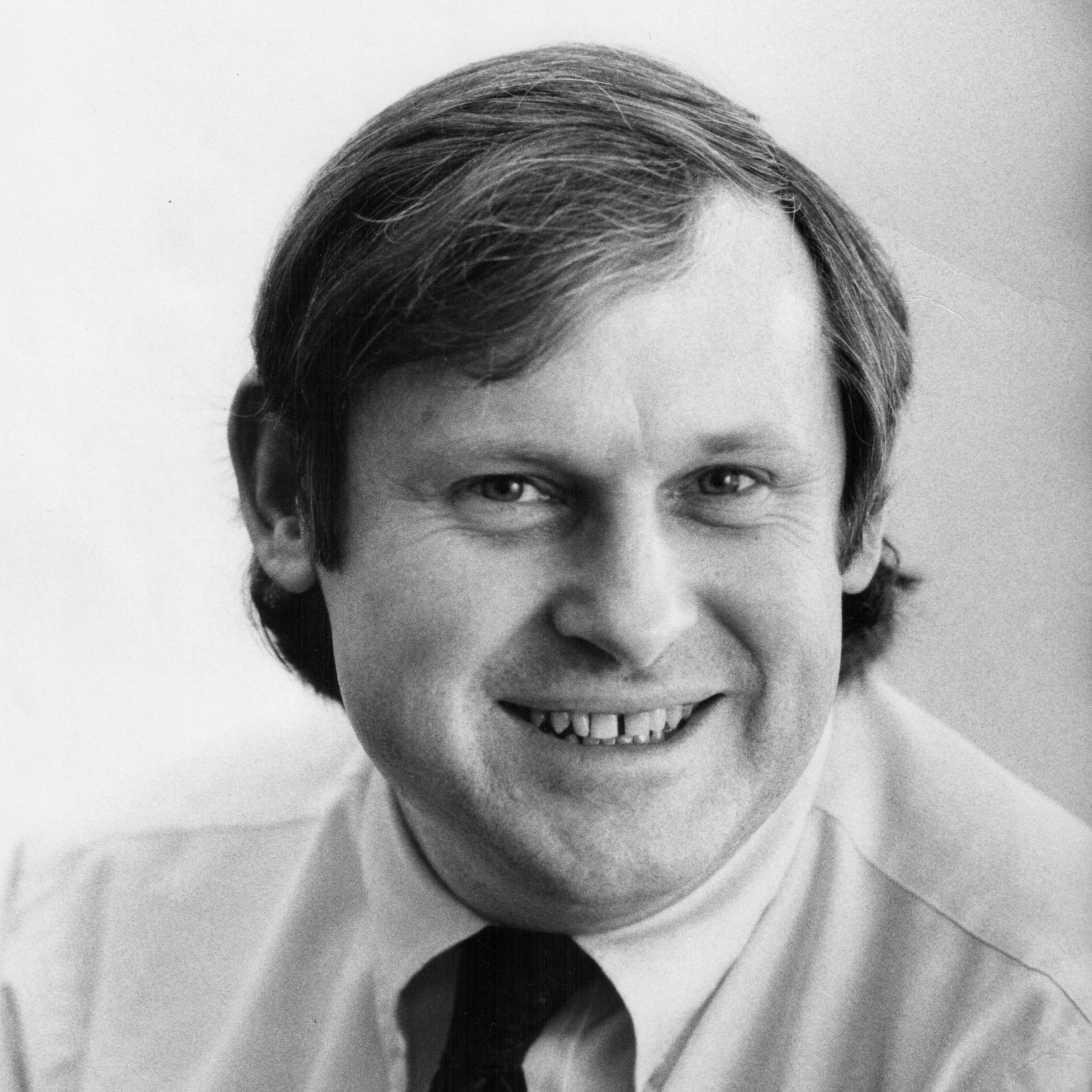ICWA’s former Executive Director Peter Bird Martin, who revived the institute after he took over in 1978 and tirelessly championed its mission for the next 27 years of his tenure, died in Hanover, New Hampshire on November 22 at age 92, his wife Lucretia Martin said.
A former fellow in Africa in the 1950s who went on to a glittering career as a Time Magazine senior editor and a founding editor of Money Magazine before he led ICWA, Peter became a formative influence in the lives of the fellows he mentored for more than a quarter-century.
Peter Bird Martin at Time Magazine
He was born in Philadelphia on July 9, 1929 to William Thornton Martin and Virginia Evelyn (Bird) Martin.
He began writing for Dartmouth’s college newspaper in 1947, then joined the St. Louis Post-Dispatch to cover what he described as “dead bodies in the bottom of elevator shafts, fires, the League of Women Voters and school board elections.”
His interview for the job with City Editor Raymond Crowley was captured in a photo thanks to a chance visit by a Holiday Magazine photographer for an upcoming feature on St. Louis. “He snapped me in my bow-tie and gabardine suit, and Mr. Crowley interviewing me,” Peter wrote in his memoir The Time of My Life.
His father later spoke to the photographer. “Did you see an iconic moment there, the fresh kid reporter being interviewed by the crusty old editor?” he asked.
“No,” the photographer said. “It was the spittoon” next to Crowley’s desk.
Peter interviews for his first job at the St. Louis Post Dispatch (The Time of My Life, by Peter Bird Martin)
Peter’s reporting included exposing a secret campaign by the Anheuser-Busch brewing company opposing the fluoridation of St. Louis’s water supply. His article caught the attention of Walter Rogers, then-executive director of the Institute of Current World Affairs, who wrote Peter suggesting he spend two years in sub-Saharan Africa as an institute fellow.
En route from St. Louis to Southern Rhodesia, now Zimbabwe, Peter stopped in New York, where he visited Rogers at his 5th Avenue office.
“How often do you want me to write?” Peter asked.
“When you know enough about something to write about it,” Rogers replied, “write about it.”
As a fellow from 1953 to 1955, Peter reported on social, economic and political issues of sub-Saharan Africa during decolonization.
Soon after he arrived, he wrote Southern Rhodesia’s prime minister, Godfrey Huggins, requesting an interview. “Looking back, I guess it took a lot of nerve, but I had turned 24 the month I arrived, and [an] election was scheduled for December,” he wrote. “There was no time to waste.”
Not only did the prime minister meet Peter for lunch at his club but also offered to write letters of introduction to his counterpart in Northern Rhodesia as well as an influential plantation owner. “You shall have them on one condition,” Peter later quoted Huggins as saying. “You will be traveling around, taking the pulse of the electorate… So in return I want to have lunch with you, here, every five or six weeks, and I want you to tell me, in all frankness, how it’s going.”
Peter agreed.

After his fellowship, he went to work for Time writing about Latin American affairs for eight years, then as senior editor of the magazine’s medicine, press, law, science and performing arts sections.
He was also assigned to help invent new publications to take the place of Time Inc.’s defunct Life: the future Money, People, Well and Entertainment magazines. Along the way, he wrote profiles of Muhammad Ali, Rachel Welch and other celebrities.
In 1978, he became the institute’s third executive director, as he described it, to give young journalists the same opportunity Walter Rogers had given him in 1953.
ICWA’s endowment had been almost entirely spent down by then, and the institute had only a sole fellow, Joseph Battat, in China.
Peter moved the institute’s offices near his alma mater in Hanover, New Hampshire, from where he proceeded to mentor, edit, travel and support the 77 fellows he appointed, building the institute into what it has become today.
“He was a wonderful raconteur and writer, quick to laugh, but kept his eyes on the serious matters at hand,” Battat—who later became ICWA board chair—said. “He loved, nurtured, mentored and protected his fellows like a mother hen.”

Many of those fellows describe his boundless optimism and energy, detailed anecdotes and witticisms that were as legendary among the institute community as his singing.
“Peter has been the beating heart of the institute family,” trustee Ed Sutton said.
Along the way, Peter also founded the South-North News Service in 1985 to cultivate reporters from developing countries and provide news from a local, non-Western viewpoint.
After his retirement from ICWA in 2007, he founded the John Hazard Institute, which offered international fellowships to young American lawyers for studying the language, law and culture of countries deemed crucial to the understanding of international affairs.
ICWA’s current executive director, Gregory Feifer, first met Peter as a fellowship candidate in 1999 in Russia, where he was employed by a local English-language newspaper that couldn’t afford to send its reporters beyond Moscow’s city limits.
Landing in the capital’s notorious Sheremetyevo airport, Peter emerged smiling in his Dartmouth green blazer, unmissable in an endless sea of grey gloomy faces and black leather jackets.
“I went on to travel widely across Russia and to other former Soviet republics as a fellow for what became a foundation of my career in journalism,” Feifer said. “There was nothing else like the ICWA fellowship. My main work today is carrying on Peter’s tradition.”
Peter is survived by Lu and two children from his first marriage to Julia Gordon, William Thornton Martin and Lucy Martin Halter.
The institute is raising funds to endow a Peter Martin fellowship, please contribute here.
Top photo: Peter, far right, descends into a South African coalmine during his ICWA fellowship



